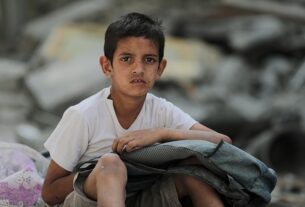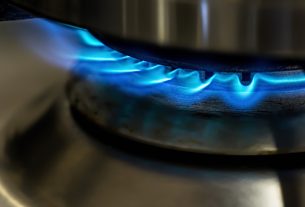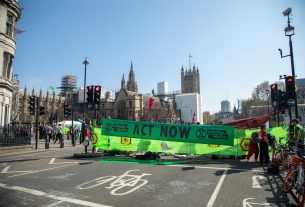UK energy suppliers are preparing to “wargame” emergency plans to avert blackouts this winter with warnings that low gas supplies could see power stations shut off.
Government officials and sources at two power stations say they have been asked to review their plans to deal with threats of dangerously low supplies in order to prevent blackouts across Britain.
The Independent reports that “drills could take place in September and October” during which gas power stations might be switched off “in order to ease high network demand” for energy.
“We’re wargaming very serious scenarios. These are not unlikely scenarios,” a senior official said.
Plans being drawn up are far more detailed than current emergency scenarios dealing with standard winter resilience planning as the deepening energy crisis presents a far higher risk than normally expected.
Nick Wye, a director at energy consultants Waters Wye Associates said: “The reality is it’s going to be a very tight winter.”
Wye added: “If it’s very cold for an extended period, we can expect tightness, which may lead to customers being asked to reduce or cut off their supplies.”
Such a scenario will see gas-fired power stations asked to “load-shed”, meaning they will reduce or even turn off their operations to ease the pressure on gas consumption and energy networks to avoid blackouts.
A government spokesperson from the Department for Business, Energy and Industrial Strategy said the UK has “one of the most reliable and diverse energy systems in the world, and unlike Europe, we are not dependent on Russian energy imports, meaning households, businesses and industry can be confident they will get the electricity and gas they need.”
‘Blackouts lasting for days’
Norway and France provide energy to power millions of UK households each year via interconnectors but these supplies are also under threat, raising concerns of winter blackouts lasting for days.
A senior official working on UK energy resilience said Norway has already warned it may have to ration the electricity it supplies to the UK while France’s nuclear power station production “is way down” because of critical maintenance work.
“That should worry the UK, when that’s been the key top-up power for our network at crunch times,” said the official.
Norway is called the battery of Europe thanks to its hydroenergy capacity and currently supplies electricity for up to 1.4 million UK homes via a 1.4 gigawatt power cable which opened last year. However, the drought affecting the UK has impacted all of Europe and the Norwegian reservoirs that produce the hydroenergy are 25% below normal levels and depleting faster because of electricity exports to countries like the UK.
Morten Frisch, a Norwegian energy consultant based in the UK said: “The consequences of not receiving this power from Norway would be that if a plant goes out in the UK, there could be blackouts.
“The water levels in Norway are now at the point where it’s probably going to take two summers to build it up again.
“Yesterday afternoon and early evening, the UK was importing about 0.7 gigawatts of hydroelectric power from Norway.
“This was the case, although it is my understanding from newspapers at home, Norway, in a diplomatic way, has informed the United Kingdom, ‘could you please stop doing this?’, because we are now nearing water levels in some of our major hydroelectric water reservoirs where we might have to stop producing hydro power.”
During the winter the UK’s demand soars to 58 gigawatts and part of the National Grid’s plan is to supply some of this with imported electricity. However, Frisch has warned that the “water resources needed to produce electricity” in Norway might not be there” this winter, because of the drought.
Exacerbating the supply problem has been low winds affecting the energy generated by windfarms, increasing the UK’s reliance on imported electricity.
Kathryn Porter, an energy consultant at Watt-Logic, said this could worsen if the winter also has low winds which combined with less imported energy will spell “real trouble” for the UK.
“I think there’s a high likelihood we’ll see curtailment of industrial consumption. Then I expect that we could also see public campaigns to get people to reduce consumption or to move their consumption around in time,” she said.
“In Britain, that would be something like, please could you cook your dinner later? Turn your lights off in the room, turn off anything that’s on standby that you don’t need? If that’s also not good enough, then you get into the rolling blackouts territory.”




